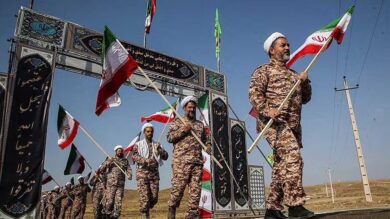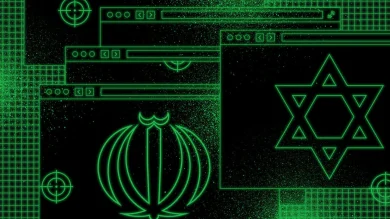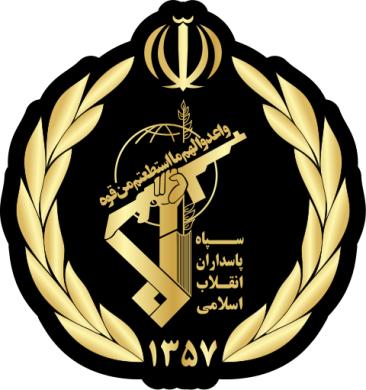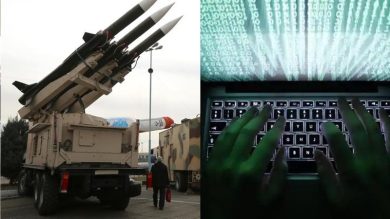The Islamic Revolutionary Guard Corps (IRGC), originally established in 1979 to protect the ideals of Iran’s Islamic Revolution, has evolved into a powerful force that transcends military and political influence. Today, it operates one of the most dominant economic empires in Iran, controlling significant sectors of the country’s economy through opaque networks of front companies, conglomerates, and illicit enterprises.
This report explores how the IRGC’s economic dominance fuels corruption, suppresses competition, undermines civilian governance, and directly finances domestic repression and regional instability.
1. The IRGC’s Rise to Economic Power
A. From Revolutionary Force to Economic Giant
In the wake of the Iran-Iraq war (1980–1988), the IRGC began acquiring infrastructure contracts to rebuild the country. This foothold quickly expanded with the creation of:
• Khatam al-Anbia Construction Headquarters: One of the IRGC’s largest engineering firms, responsible for billions of dollars in construction and oil-related projects.
• Bonyads (Religious Foundations): These semi-state foundations, often exempt from taxes and oversight, became IRGC tools for economic expansion.
• Shell Companies and Holding Groups: Used to mask IRGC ownership and access tenders in industries such as telecommunications, banking, mining, and energy.
B. Privatization and Power Consolidation
During the 2000s, Iran’s government initiated a privatization campaign—ironically, this benefited the IRGC most. By acquiring previously state-run enterprises at discounted prices through insider deals, the IRGC solidified its control over:
• Oil and gas sectors
• Transportation and shipping
• Telecommunications (including partial control of Iran’s largest mobile provider)
2. Corruption and Illicit Finance
A. Lack of Oversight and Transparency
The IRGC’s economic empire is largely insulated from regulatory oversight. Its operations:
• Bypass parliamentary scrutiny
• Evade taxation
• Function through opaque bidding and contracting processes
This creates an ideal environment for institutionalized corruption, with billions siphoned from national wealth into the hands of IRGC elites.
B. Money Laundering and Smuggling
International reports and leaked documents have shown that the IRGC is involved in:
• Money laundering schemes through offshore accounts and front companies
• Smuggling operations involving oil, arms, and consumer goods, bypassing legal customs processes
• Control of black markets, providing further financial autonomy from civilian government structures
3. Economic Impact on Iranian Society
A. Suppression of Free Market and Private Enterprise
The IRGC’s dominance creates an environment where:
• Independent entrepreneurs are sidelined
• Competitive bidding is nearly impossible
• State-linked monopolies stifle innovation and efficiency
This stunts economic growth, limits job creation, and discourages foreign investment.
B. Financial Burden on Ordinary Citizens
Due to corruption and inefficiencies:
• The national budget is strained, with funds diverted to IRGC projects and security apparatus
• Inflation and devaluation of the Iranian rial persist
• Social services suffer, contributing to widespread economic despair
4. Funding Repression and Foreign Intervention
A. Domestic Repression
The IRGC’s economic wealth directly funds:
• Surveillance programs to monitor and suppress dissent
• The Basij militia, which enforces morality laws and suppresses protests
• Expansion of prison systems used to silence activists, especially women and journalists
B. Regional Destabilization
The IRGC’s Quds Force uses economic resources to fund and arm proxy groups such as:
• Hezbollah in Lebanon
• Houthi rebels in Yemen
• Militias in Iraq and Syria
This fuels ongoing conflicts, contributes to mass displacement, and threatens regional peace.
5. Global Sanctions and International Response
A. Sanctions Targeting the IRGC
The United States designated the IRGC as a Foreign Terrorist Organization (FTO) in 2019—the first time an official arm of a state received such a designation. This move was intended to:
• Disrupt financial flows to IRGC-controlled companies
• Penalize international firms doing business with the IRGC
• Pressure Iran into curbing its aggressive regional policies
B. Effectiveness and Loopholes
While sanctions have had some impact:
• The IRGC uses complex ownership structures to mask involvement
• Certain governments and companies continue to engage economically with IRGC-affiliated entities
• Humanitarian efforts sometimes get caught in sanction crossfire, requiring refined enforcement strategies
6. Civilian Pushback and Economic Resistance
A. Iranian Protest Movements
Economic frustration is a major catalyst for protests in Iran. Citizens blame:
• Crony capitalism under the IRGC
• Corruption and wealth disparity
• Investment in foreign militias over domestic needs
Chants such as “No to Gaza, no to Lebanon, my life for Iran” reflect discontent with the IRGC’s economic priorities.
B. Civil Society and Diaspora Pressure
Iranian diaspora groups and civil society organizations are calling for:
• Increased transparency in Iran’s economy
• Global pressure to blacklist IRGC-controlled companies
• Boycotts and campaigns targeting firms complicit in IRGC contracts
7. Recommendations for the International Community
A. Expand Sanctions and Designations
• Encourage more countries to follow the U.S. in designating the IRGC as a terrorist organization
• Sanction entire networks of front companies, not just their parent entities
• Target IRGC-controlled banks and investment firms
B. Support Iranian Civil Society
• Provide tools to activists to track and expose IRGC economic corruption
• Invest in secure communication tools to bypass digital surveillance
• Support platforms that empower Iranian whistleblowers and journalists
C. Promote Transparency and Accountability
• International bodies like the UN and FATF should continue pressuring Iran to enforce anti-corruption measures
• Companies must be held accountable for dealing with IRGC-linked entities
• Encourage global corporations to divest from sectors controlled by the IRGC
Conclusion
The IRGC’s economic empire is not just an Iranian problem—it’s a global challenge. Its vast wealth enables corruption, regional warfare, and authoritarian control. By understanding the structure, reach, and consequences of this empire, the international community can act decisively to weaken its grip, support the Iranian people, and promote a more peaceful and accountable future.
Join Our Newsletter!
Stay informed with the latest updates, news, and ways to take action in the fight for justice and global security. Sign up now to get updates delivered straight to your inbox!





